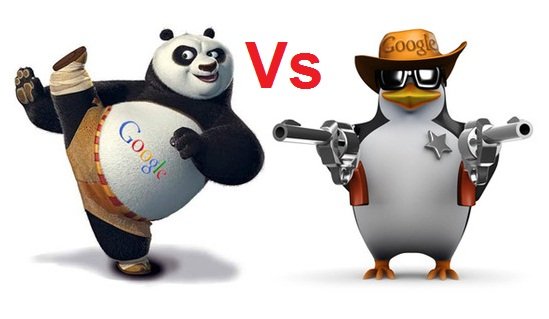Difference between Google Panda and Google Penguin
For those who deal with SEO and blogging, Google panda and Google penguin should not be something new to them. Ever since these updates were introduced, there has been strong buzz on how to develop the perfect search engine optimization plan, so that websites have their dues in rankings. Moving forward, here is a close take Panda and penguin, the two most discussed Google updates, and the difference between the two.
What is Google Panda
Google launched Panda in February 2011, mainly as a change in its search results ranking algorithm. The main purpose of the update was just to keep those low quality and low content sites away from the top ranking results and give the actual quality sites their due.
As an obvious result, many websites with huge amount of advertising, or those with low quality content, saw a huge decline in the rankings. Ever since Panda was launched, there have been many updates to it ranging to over 22 in total.
What is Google Penguin
Another algorithm update from Google that gave SEO experts another blow was Penguin that was launched in April 2012. The idea underlying the update was simple enough- penalize and decrease the rankings of sites that breach Google’s Webmaster Guidelines set the by the search engine.
This included lowering the search engine rankings of all those sites that practice black-hat SEO techniques like duplicate content, keyword stuffing and cloaking to name a few.
Google Panda Vs Google Penguin
| Attributes | Google Panda | Google Penguin |
|---|---|---|
| The Idea | Penalize websites of low quality and those with low quality content.It is first introduced in 24th February, 2011 with the name of Farmer Update in USA. | Bring down websites that violate Google’s Webmaster Guidelines and use black-hat SEO techniques |
| Date of First update | February 2011 | April 2012 |
| Also Known as | Farmer Update | Over Optimization Penalty. |
| Number of updates | Panda had over 24 updates till March 2013, last being on Jan 22, 2013. | Penguin had just three updates since its launch in April last year. |
| Purpose | Bring the high quality and content sites on the top of search engine rankings | Bring the high quality and content sites on the top of search engine rankings |
| Surviving the algorithm change |
|
|
| Google released any tool to recover ? | NO | Google introduced A new tool called “disavow links tool” – see the Google webmaster central blogpost |
| Recovery choices for websites | Panda is basically an on-page problem, so the main changes need to be on the website. Check for pages with no or little content, as well as, for plagiarism. Creating elaborative pages with FAQs and more for a website should help. | Check for the links to find if there are from the same domain name or IP address, so that links don’t look like purchased. The links should not just be direct links to the website, because websites that have followed such polices have seen dip in the rankings.
Disavow tool can be helpful in getting rid of too many links that are just associated with the keywords. Penguin genuinely focuses on penalizing unnatural links that are causing changes in the search results intentionally. |
| How do The algorithms affect a site? | It is possible that an entire site is affected through panda. Usually single pages of a website are not targeted in the algorithm.
Panda doesn’t look for think contents but the overall content, so in websites where little original content and more duplicate or thin contents are present, those are likely to be fully penalized. | Penguin generally affects one part of the website on a page and keyword level.
Unless spammed for too much keyword usage on the entire, Penguin doesn’t damage the entire site. |
| Does a recovery request help? | No, because the changes are overall. | No, unless a manual warning is issued, and even in such warnings, recovering is next to impossible. |
| Does manual removal of links needed? | No, because content is more important here. | If time permits and one wants to avoid relying totally on Disavow tool, then definitely manual link removal is helpful. |
| By when sites can recover? | If the duplicate and thin content has been done away with, then probably by the next refresh. | Should take time in recovering as refreshing is not frequent. Google has announced an update but with no date specified. |
| When is the next update ? | No idea | 4th penguin update going to happen soon in the month of May, 2013. source : Matt Cutts Twitter |
Even though the magnitude of the updates seems to be low in comparison to the results they generated, there is no denying that SEO experts and webmasters have a lot to cope with. With content getting the topmost priority, there is no possibility of any kind of trick in the current scenario!
Still if you are confused about these Google search updates and wanted some personal tips and tricks then contact us and we will try to help and guide you 🙂
